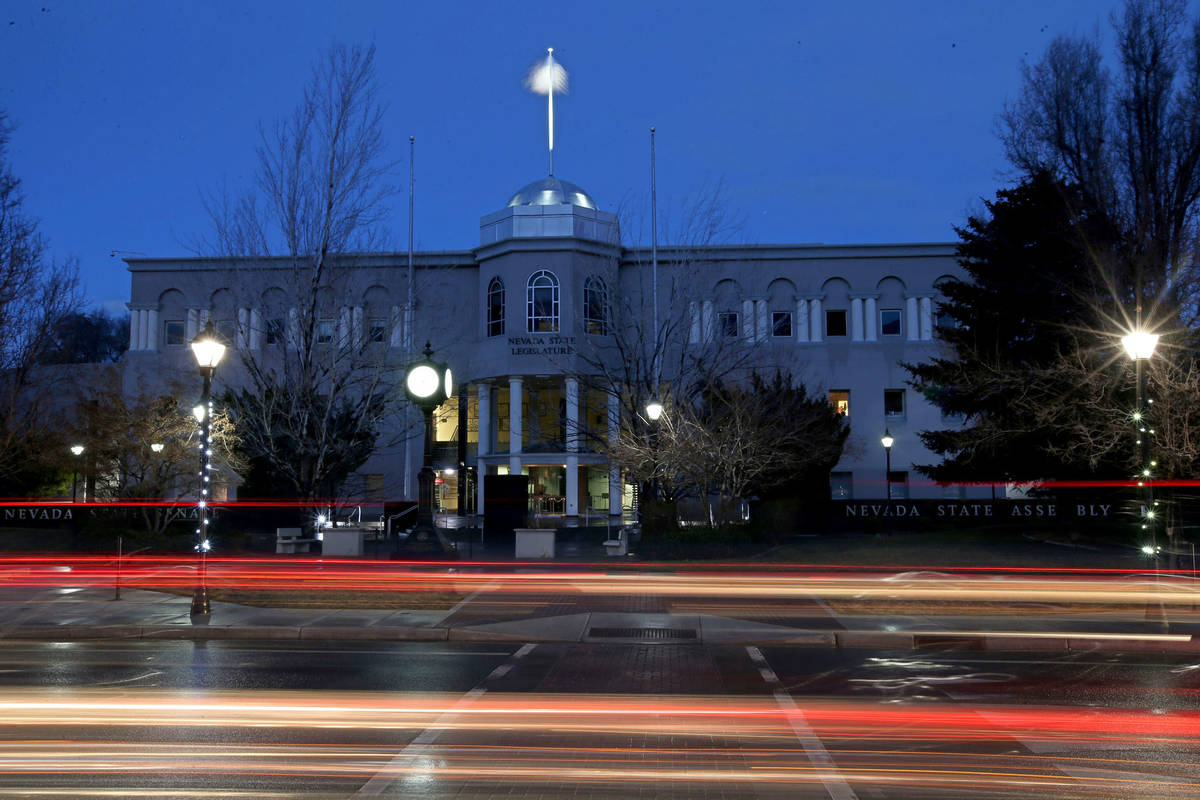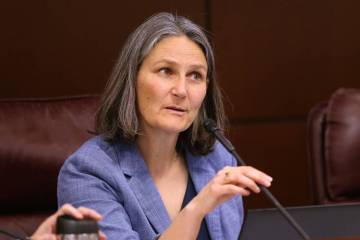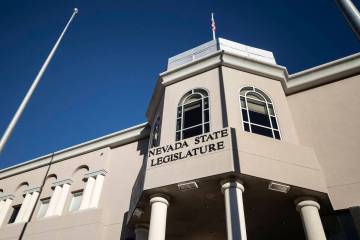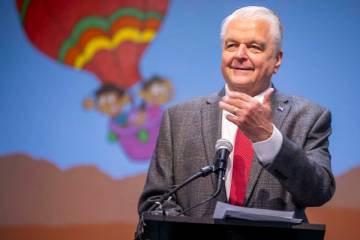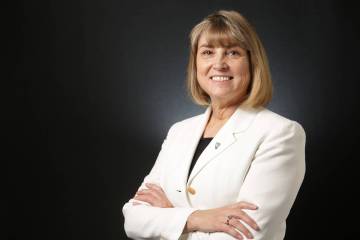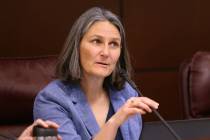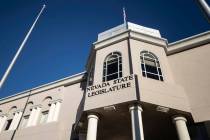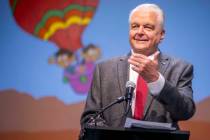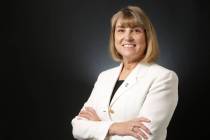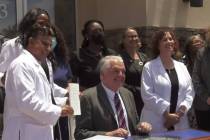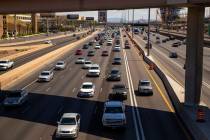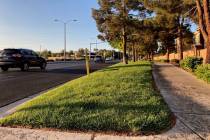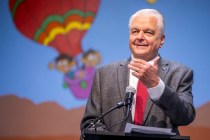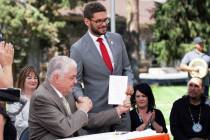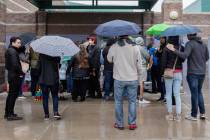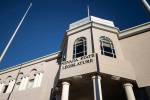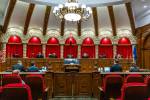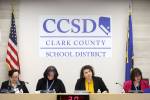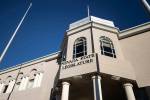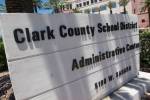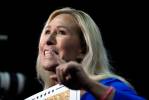Lobbyists were shut out of the capitol. Local governments still spent thousands on them.
The Nevada legislative building on Carson Street in the capital is where much of a lobbyist’s work is done each session.
It is where government advocates frequently crisscross with lawmakers and other activists for impromptu interactions in hallways and during breaks in committee hearings.
But due to the pandemic, the building was closed this year to the broader public, including lobbyists, from the Feb. 1 start of the session until April 15, when it reopened with limitations.
Even so, Southern Nevadan governments paid tens of thousands of taxpayer dollars to send their lobbyists to Carson City despite having little to no physical access to lawmakers, according to data analyzed by the Las Vegas Review-Journal.
Government spending on travel and lodging illustrates the varying degrees in which officials believed their advocates would be effective in the capital.
The city of Henderson sent three lobbyists to Carson City through April 15 and spent more than $48,000 on travel and lodging, data shows. It is about $4,000 more than the city paid in those categories over the same period last session.
“Having staff on the ground in Carson City enhances effectiveness and ensures the City’s voice is heard when decisions are being made that can have lasting consequences on our community and those who live, work, learn and play in Henderson,” city spokeswoman Kathleen Richards said in a statement.
Richards said that limited physical access to the legislative building “has not kept the City’s lobby team from doing its job.”
Despite spending more on travel and lodging, the city’s overall lobbying expenses were down from 2019 when incorporating costs such as operations, contracts and fees, data shows.
The spending by local governments also demonstrates the difficulties of navigating a legislative session unlike any other in recent memory.
Las Vegas spent about $23,000 on lodging and travel through April 15, less than during the same period in 2019, according to data.
But nearly all that money — $21,350 — was paid to rent two rooms over five months at the St. Charles Hotel, which cost about $3,400 more than three rooms rented by the city at a different hotel in 2019, records show.
City lobbyist Kelly Crompton said the hotel needed to be secured prior to the rules of the session being established.
“We at the time did not know what session was going to look like,” she said.
Pandemic altered typical lobbying
Crompton said none of the city’s work tracking hundreds of bills and fiscal notes had fallen through the cracks despite access constraints.
Fellow Las Vegas lobbyist Randy Robison acknowledged, however, it is difficult to say whether lobbyists have been as effective as they would have been in a normal cycle.
The pandemic forced lobbyists into coffee shops or restaurants to chat up lawmakers and fellow advocates, they said. Dozens of daily impromptu conversations that could normally be had walking with a legislator from a committee room to their office — the type of interactions that Robison said “really drive that advocacy” — had to be scheduled instead.
Lawmakers have been accommodating with such scheduling, they said.
The city typically sends all three of its lobbyists to Carson City, Crompton said. But through at least May 11, just one lobbyist had been making the trip up north while two stayed behind to work remotely.
The decisions on whether to fly to the capital — tickets are generally booked a month in advance — were based on scheduled committee hearings that the city wanted to attend, according to Crompton.
“There was definitely weeks where no one was there,” she said.
Records show that Las Vegas and Henderson each canceled and were refunded for several flights through mid-April.
Different approach, with tax dollars in mind
The city of North Las Vegas appeared to adopt the most conservative approach to the new constraints: It chose not to send lobbyist Jared Luke to the capital while the legislative building was closed.
Assistant City Manager Delen Goldberg said Luke was no less effective working remotely early in the session. She called the decision to keep him local a responsible use of taxpayer money.
“The only difference is, I would have been across the street on taxpayers’ dollars versus being in City Hall,” said Luke, the city’s government affairs director, who only came to Carson City for the first time in early May.
But Luke said even if he had traveled to the capital before this month, after-hours meetings were scarce because many lawmakers were not fully vaccinated. Seeing one or two of them at a restaurant, he said, would have been “the highlight of a week.”
The city said it spent nearly $7,000 on all lobbying efforts through April 15. Those costs were attributed to staff time incurred by the government affairs team, according to the city. It is far less than it would spend in a normal year.
Clark County lobbyists were not available to be interviewed because they were too busy during legislative crunch time as the session wraps up next month, spokesman Erik Pappa said.
But two lobbyists had traveled to Carson City during the session, he said.
The nearly $32,000 the county spent on travel, lodging and meals through April 15 paled in comparison to the $201,000 it paid during the same period in 2019, according to data. The county also spent $50,000 on contract lobbyists this session — a new expense from two years ago — yet it is unclear if any outside lobbyists traveled to the capital.
Zoom meetings cannot replace face-to-face
Even after the legislative building reopened, the change had not been immediately dramatic, with a “bit of access” but not free-flowing as normal, according to Crompton.
The larger shift, she said, is that there were simply more people in Carson City. And there remain days where she does not need to go inside.
After more than three months of lobbying during a pandemic, Luke said that virtual elements to the job are an attractive prospect for future sessions.
“Will it replace session? No,” he said. “Will it be a component of session and meetings moving forward? I think so because I think people have kind of warmed up to it and seen that it’s an effective tool.”
Yet Robison, who said the virtual legislative session had gone as smoothly as it could, was also clear that personal contact has been sorely missed.
“No Zoom meeting can ever replace a face-to-face and that’s true of this work or anybody’s workplace,” he said. “Now I think almost three months on, we’ve all kind of figured it out (and) realized what the shortcomings are and did our best to overcome that.”
Contact Shea Johnson at sjohnson@reviewjournal.com or 702-383-0272. Follow @Shea_LVRJ on Twitter. Contact Blake Apgar at bapgar@reviewjournal.com or 702-387-5298. Follow @blakeapgar on Twitter.
A previous version of this story incorrectly stated how many lobbyists Henderson sent to Carson City. Henderson sent three lobbyists.



